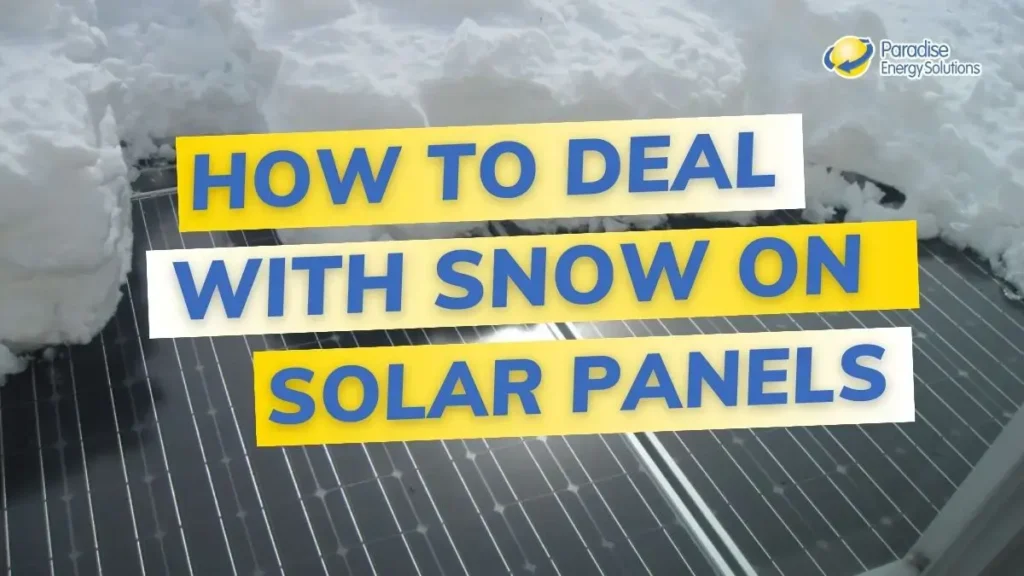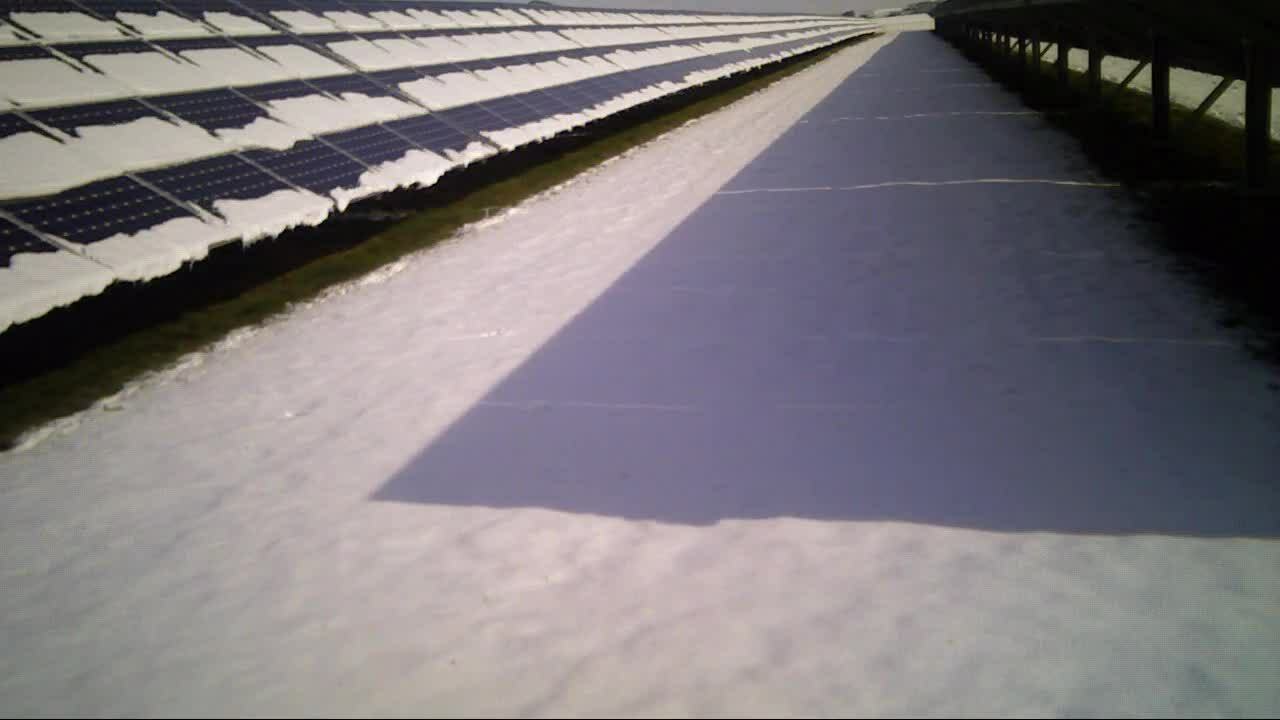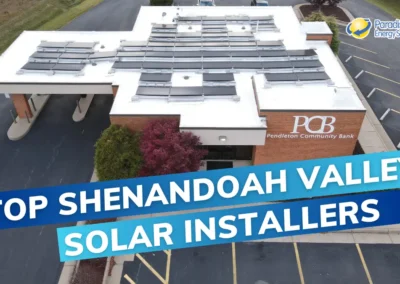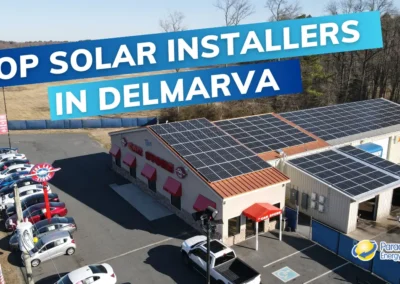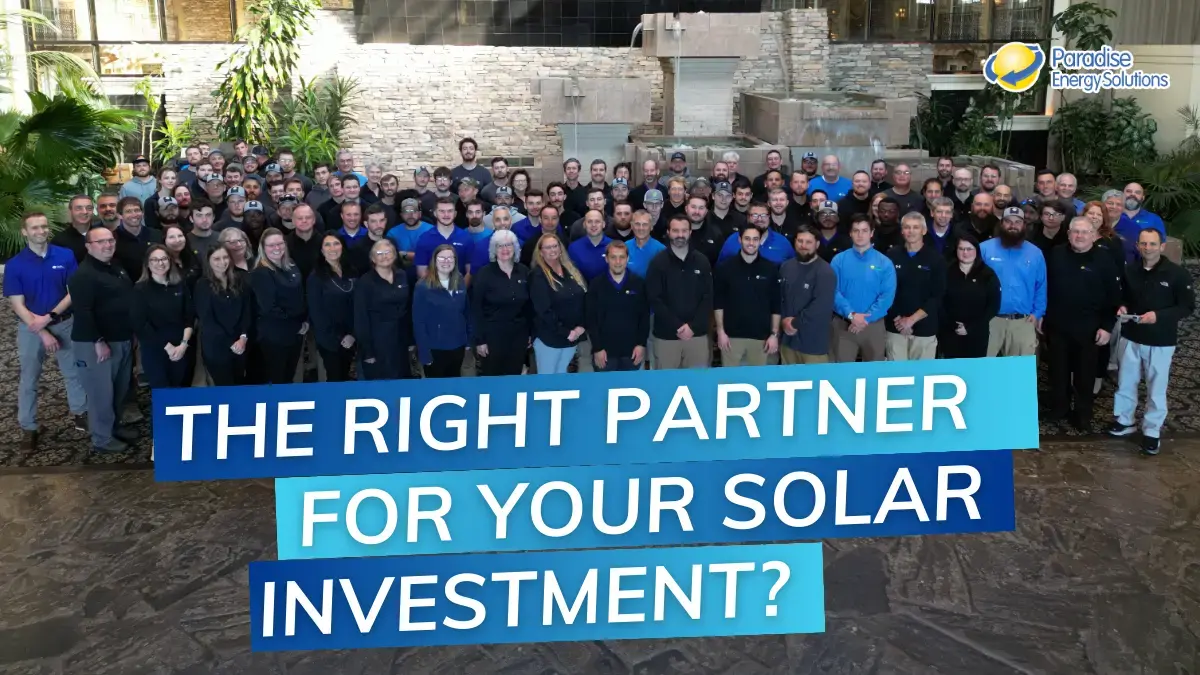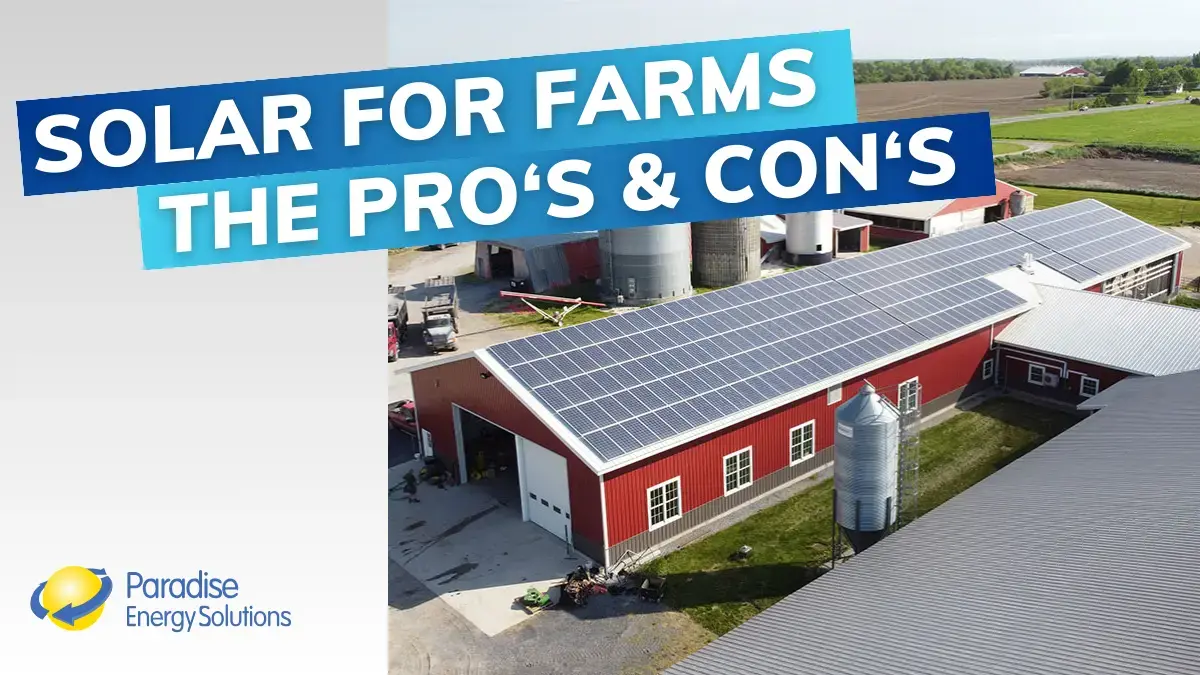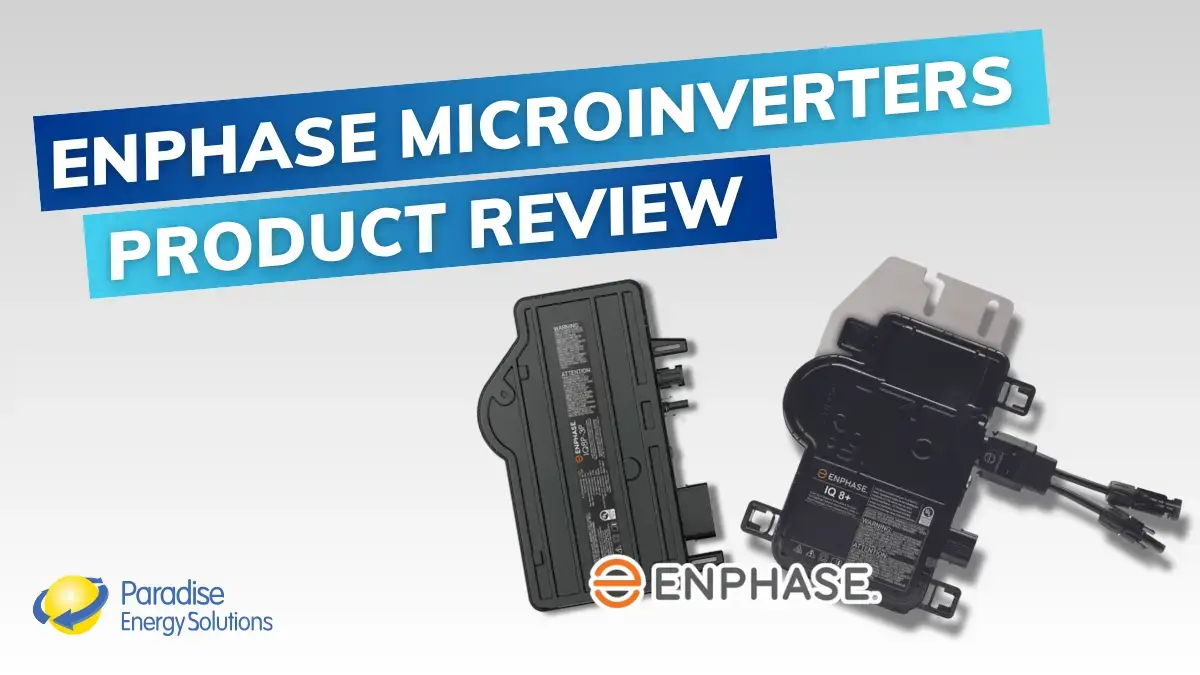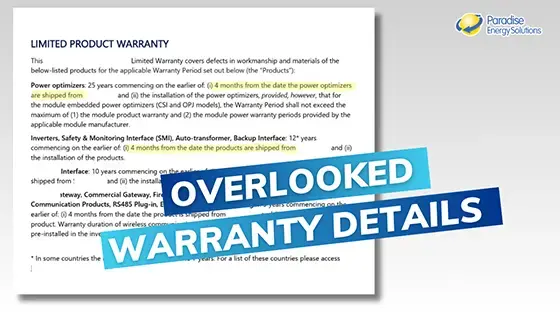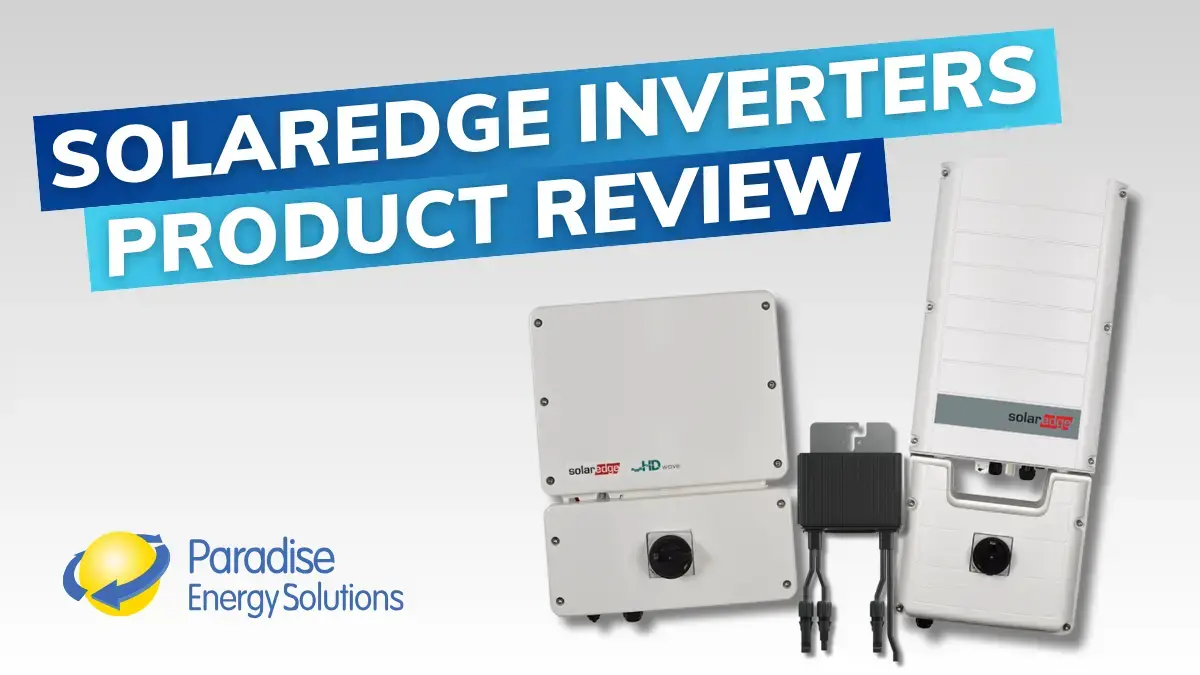Snow. Some of us love it and some of us hate it, but if you live in the Mid-Atlantic States, it’s often an inescapable part of the winter months. If you’ve installed solar, you may be wondering how snow on your panels will impact your output and what you can do to take care of them.
After all, when the panels are covered, sunlight can’t reach the electricity-generating cells, and you’ll be losing out on some energy production. Couple this with shorter winter days and you might be wondering if you’re better off removing snow so your system can produce power.
In this blog, we’ll address some common winter-related concerns and give you tips so you can handle them like a solar pro.
Will the weight of heavy snow hurt my panels?
Except in some extreme cases, the weight of snow will not hurt your panels. All solar panels are assigned a pressure rating which measures the amount of pressure a panel manufacturer is willing to guarantee won’t hurt their product. Most panels are rated for a load of 5,000 or more Pascals (Pa), which means two to four feet of snow, depending on the snow’s density.
Unless you have severe and consistent snowfall, your panels will not be affected.
Are you supposed to clean snow off solar panels?
Many industry experts recommend that you do not attempt to remove snow from solar panels. Even with a roof rake, doing so may void your solar panel warranty, or worse, you could hurt yourself.
In most cases, the sun melts the snow off solar panels much quicker than many think—quicker than the ground and even your roof. Panels retain warmth and are often installed at an angle, so even heavy snow slides right off when the storm blows over. Skeptical? Check out this timelapse of snow melting off one of our New Holland, PA, projects. The snow melted off the solar panels in about one day, despite the bone-chilling temperature.
If you are in the Mid-Atlantic or other regions where heavy snowfalls of two feet or more are uncommon, cleaning snow off your panels is rarely a good idea. If you have just a dusting, photons can still penetrate down to the panels and continue producing electricity. If you get a substantial amount of snow, it’s rare for snow to cover solar arrays long before it melts.
Customers with our Triple Ten Guarantee have even less to worry about. The production guarantee covers shortfalls in the amount of energy produced, so if a snowy winter hurts your production more than what we said it would, we’ll cover the difference.
The few kilowatt-hours you gain by removing your snow really isn’t worth any type of risk to your system, and definitely not worth the risk to yourself.
Solar PV is all about letting the sun do the work. From producing electricity to clearing snow off the panels, let mother nature do her thing.
What does this mean for the amount of energy my solar system produces?
Sure, when your panels are covered with snow, they won’t be able to produce solar energy. But losing out on a day or so of production isn’t worth risking your warranty or safety.
Your solar panels actually work better when it’s cold than when it’s warm. Like a lot of electronics, solar systems have a negative temperature coefficient. This means they experience less resistance and can generate more electricity in colder weather. The only reason your system output is less in the winter is that days are shorter.
What can I do about snow on my panels?
You could hire a professional to come safely remove the snow from your panels. After some extreme snowstorms, this may be your best bet. But oftentimes, you’d spend more money on this service than your solar system would save you.
One thing you could do, if you have a ground-mounted system and your panels are low to the ground, is keep the ground in front of your panels bare. As the snow falls down off your panels, it won’t pile up and drift back onto your panels.
Overall, your best option is to simply do nothing! Whether you prefer to stay inside with a warm beverage or venture outside for some winter sports, chances are your favorite snow activity isn’t its removal. Unlike your driveway, you can take the easy way out and let the sun do its thing. You’ll stay safe, keep your panels working properly, and be back to producing electricity in no time!
